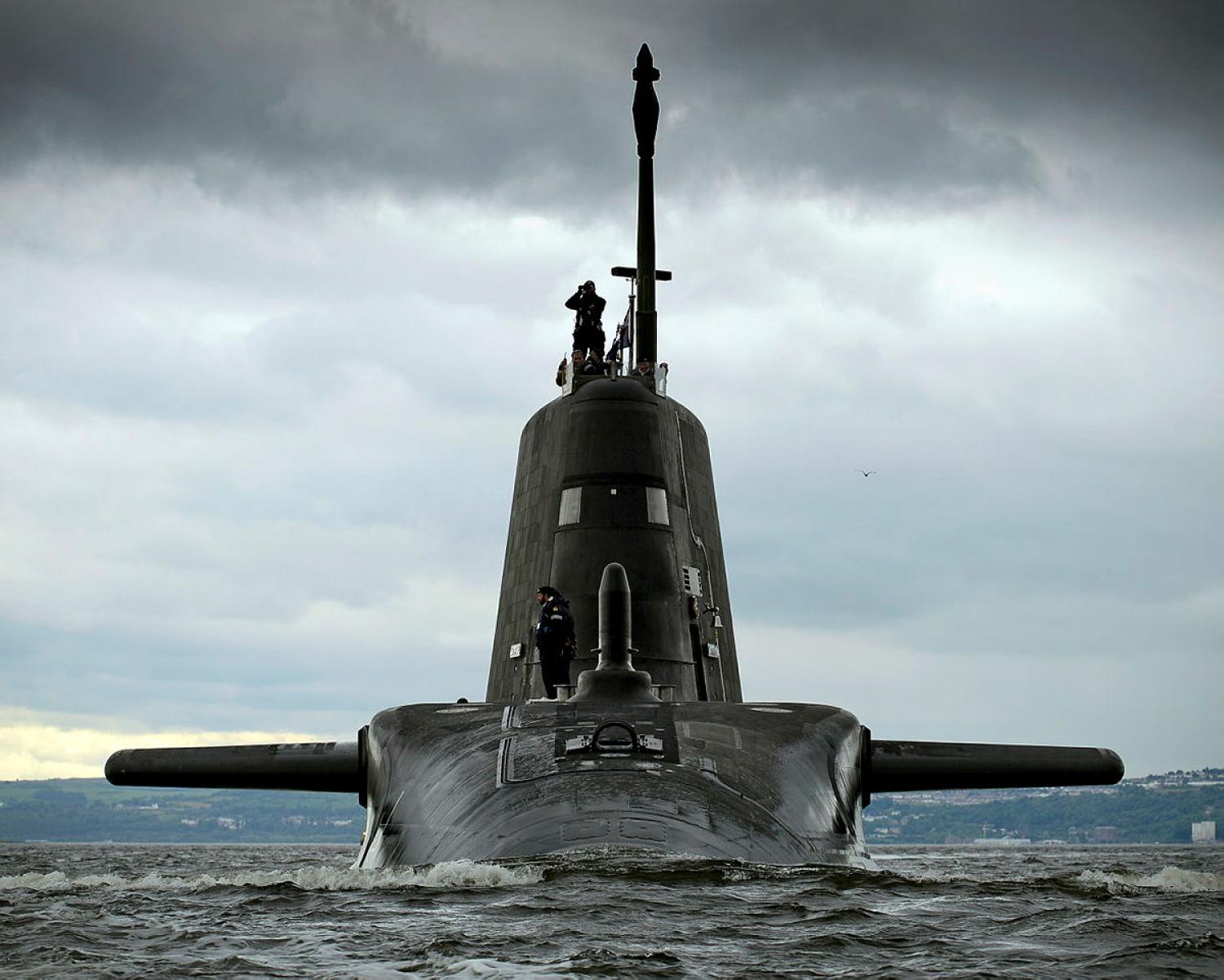AUKUS is Herculean in scale, complexity, and concept. But rather than connecting the waters of the Atlantic and the Mediterranean, as Hercules did, it unites the Atlantic and the Indo-Pacific in one of the most ambitious and demanding endeavours I have seen in my life, for Australia to acquire conventionally armed, nuclear-powered submarines.
This is not the stuff of whimsy. Nor is it a convocation of the “Anglosphere”, as some would contend – including those who oppose AUKUS because they fear it will blunt their own ambition. It does not pose challenges to the nuclear non-proliferation regime and strategic stability. Those are to be found in Vladimir Putin’s war in Ukraine and his threats of nuclear escalation, and in China’s rapid and so far unexplained expansion of its military capabilities, including big increases in its nuclear arsenal.
As Australia’s circumstances change, so too must national policies and priorities. This simple truth underpinned the Defence Strategic Update of July 2020. That document was delivered by a Coalition government and endorsed by the then Labor opposition. Though highly capable, the Australian Defence Force is comparatively small. It is precisely to dilute the risk of unequal military conflict that the ADF, and Australia writ large, must exercise much greater deterrent effect in the face of mounting and morphing challenges to our sovereignty, security and prosperity.
The contours and the import of those challenges became ever more apparent over the past decade, but we didn’t recognise them in real time and now are engaged in Herculean labour to make up lost ground.
To deter, Australia must be credible. Credibility rests on coherence, cohesion, commitment, capability, and clear communication. The partnership with the United States and United Kingdom through AUKUS is the hard-headed response of three nations that share heritage, embrace and avow common principles, institutional resilience and rigorous accountability, possess complementary skills and capabilities, and are intent on meeting common challenges.

For Australia this is a nation-building task which should excite something we have never really done in my lifetime, namely, engage in serious, thoughtful, dispassionate and self-confident national discourse about what we value and wish to preserve, what must change, and at what cost (not just financial), if we are to become and remain the Australia we wish to be. The world cannot be willed into more benign shape if we just squeeze our eyes shut tightly enough and wish it were so.
Acquiring and operating nuclear-powered submarines will be hard. It will be expensive, but we should not be cowed by big numbers, not least because who knows what inflation and exchange rates will be in two or three decades?
This is a decision informed by some of the most rigorous, disciplined and critically self-aware analysis I have observed in more than three decades in public policy-making. As important is that this is a bipartisan commitment, not just in Australia, but also in the United Kingdom and the United States. Both sides of the aisle in Congress are united in support of AUKUS. They will intently scrutinise Australia’s performance as only the third steward of America’s most sensitive military technology. That is entirely appropriate, and a deep and acute understanding of the responsibility we have embraced has been the hallmark of all those who have worked on this.
AUKUS is Herculean also because it consists of two pillars. In my role as Deputy Secretary in the Department of Defence, I was the Australian lead for what is known in shorthand as “Pillar Two”, that is, the identification and development of “advanced capabilities” across a range of technologies critical to preserving and, in some cases, re-acquiring the military edge we need to sustain both Australia’s deterrent and, in extremis, its warfighting capability.
Prominent among these are undersea and electronic warfare, quantum technologies, hyper- and counter-hypersonics, and artificial intelligence. The trilateral work under way in these areas must be transformational not only in delivering practical gains for our militaries. The Covid pandemic awoke us to the fragility of global supply chains. AUKUS is the accelerant needed to broaden the expanse of our collective R+D, financial, and industrial bases and, with full political authority, to eliminate legislative, policy, and attitudinal barriers to technology transfer and industrial collaboration that hinder our ability to generate results faster.
Some accounts hold that inscribed on the Pillars of Hercules was the phrase “ne plus ultra”, meaning “nothing further beyond”. AUKUS exceeds that in its ambition and promise. The three nations are demonstrating a resolve not only to protect their own sovereign interests and national security, but to preserve a strategic environment and law-based framework which ensures states, regardless of size and heft, have agency to make choices about their own interests, security, and prosperity.
Not long before I left public service in 2022, I spoke with a retired senior Indonesian military officer. I asked how he thought the region viewed AUKUS, one year on. He said without hesitation: “We do not fear a strong Australia. But we would be concerned about a weak Australia.”
Let that sentiment be a guide.

